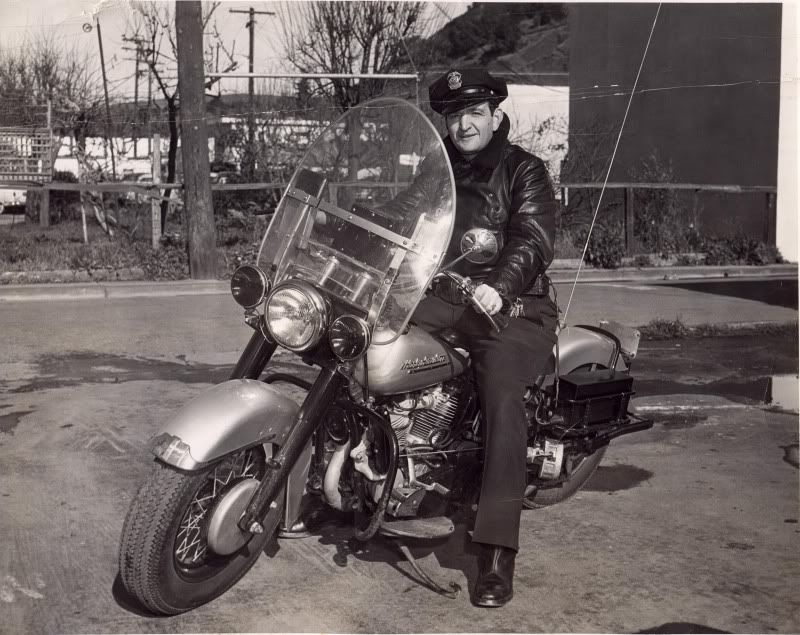Do you heat your garage to work on your bike in the winter ?
#41
Haha! That suckers worth som money though...
#43
The guy that was refereed to me as the top notch pool guy in my area that came and re-felted it and put new cushions on it said he had a job refinishing one in Canada where a lady paid $90,000 for one, and it wasn't even as old as mine. He said he'd give me $10,000 on the spot for it and I declined. 

#44
The guy that was refereed to me as the top notch pool guy in my area that came and re-felted it and put new cushions on it said he had a job refinishing one in Canada where a lady paid $90,000 for one, and it wasn't even as old as mine. He said he'd give me $10,000 on the spot for it and I declined. 

#45
My dad was the greatest person I ever met and he encouraged me to start riding when I was ten. Thanks to him I have had a lifetime love for riding motorcycles. He passed away ten years ago last month. Below is a shot of my father taken in the early fifties.


#46
Boy, I feel spoiled with my shop. 32x40 with 16' ceilings, 3 10x14 overhead doors, two man doors, and $3000 worth of lighting. Heat it with hydronic radiant in slab, fired by a 65K btu propane Lochinvar boiler. The really spoiled part is the 40x24 apron with snow melt coils. R-21 in the walls R-30 in the lid, and the first 8' of wall is plywood so I can hang crap anywhere I want.
#49
My garage is 1500 sq. ft. with a 9 ft. ceiling, 2 x 6 walls with fiberglass insulation, and as much fiberglass as I could lay in the ceiling (in the center probably 24 inches and tucked up against the baffles in the eaves.) I use an oil furnace with 88,000 Btu/hr output (something like 105,000 Btu input) running kerosene, and keep the thermostat set at exactly 60° all winter. Generally I use a total of about 200 gallons of kerosene for the winter, so the current cost is around $600 per season.
What seems odd to me as an engineer is that I use less kerosene this way (constant temperature all winter) than the way I used to do it, which was to leave the thermostat at 50° most of the time and just bump it up to 65° when I was in the garage (couple of hours per evening and then all weekend.) And it is a big advantage to never have cold tools.
A couple of the guys who deliver kerosene told me the same thing, which was that they advised (commercial) garages to just keep a constant temperature rather than running it up and down every day.
I'm located near Pittsburgh, PA, so we have pretty cold winters, though nothing like the upper Midwest sees.
What seems odd to me as an engineer is that I use less kerosene this way (constant temperature all winter) than the way I used to do it, which was to leave the thermostat at 50° most of the time and just bump it up to 65° when I was in the garage (couple of hours per evening and then all weekend.) And it is a big advantage to never have cold tools.
A couple of the guys who deliver kerosene told me the same thing, which was that they advised (commercial) garages to just keep a constant temperature rather than running it up and down every day.
I'm located near Pittsburgh, PA, so we have pretty cold winters, though nothing like the upper Midwest sees.
#50
Those little unvented gas heaters are good units. I have a couple of them. However they do have some issues you need to be aware of. First, and most important, don’t set them on the floor in a garage. Gasoline vapors tend to lie on the floor and can ignite very easily. Spill some gas or any flammable liquid, or have a leaking fuel line and you have a real problem. Around here, code use to call for 18” minimum. Not sure what it is anymore. 2nd, almost any chemical you use (wd40, brake cleaner, wax) is going to react with the open flame and cause an odor.
As for as CO (carbon monoxide) goes, a properly operating heater should put off very little if any. Install a CO detector and forget about it. The CO2 (carbon dioxide) they put off is not a problem. They will put off some moisture. That is not usually a problem in a garage. If your garage is very air tight it will need a small amount of combustion air.
As for as CO (carbon monoxide) goes, a properly operating heater should put off very little if any. Install a CO detector and forget about it. The CO2 (carbon dioxide) they put off is not a problem. They will put off some moisture. That is not usually a problem in a garage. If your garage is very air tight it will need a small amount of combustion air.
Last edited by pro2slow; 11-05-2010 at 07:12 AM.


